Once a scene of tragedy, Georgia's 200-year-old Indian Spring Hotel now offers a venue for learning about the past – including the controversial Creek leader who built it.
-
Winter 2024
Volume69Issue1
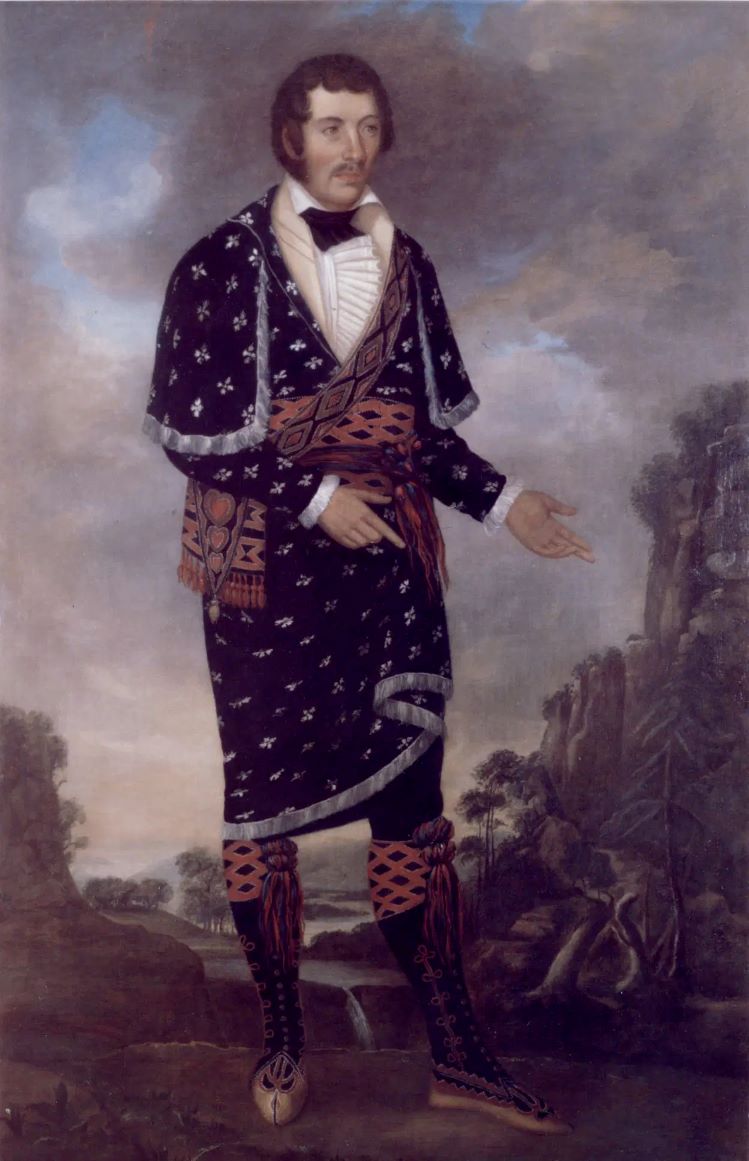
On February 12, 1825, in the alcove of a second-floor room in a grand, white, Federal-style stagecoach inn and tavern, Chief William McIntosh, the half-Scottish, half-Creek leader of the Lower Creek Indians, along with five fellow Lower Creek chiefs and federal representatives, signed the Treaty of Indian Springs. This monumental accord declared that 4,700,000 acres of Muscogee land in Georgia would be sold to the United States. There, inside the inn and tavern that he built just two years earlier, McIntosh signed his death sentence.
Before the meeting, he had been warned that he would face dire circumstances if he made a deal with the government. Opothleyahola, the leader of the Upper Creek tribe, sternly cautioned him, “I have told you your fate if you sign that paper. I once more say: beware.” But McIntosh proceeded without approval from the Upper Creeks, and during the signing, Opothleyahola stood behind the inn and furiously proclaimed, “You snake. You will die for this!”
Their anger was intensified by McIntosh giving his cousin, Governor George Troup of Georgia, permission to survey the land before the U.S. did. In exchange for the huge give-away, the government awarded the chief $200,000, plus 1000 acres of land at Indian Springs and another 640 along the Ocmulgee River. Congress ratified the treaty.
This was not the first time that McIntosh had been at odds with members of the Creek tribe. The son of a white Scotsman and a Creek woman who was a member of the Wind Clan, he was raised amongst the Creeks, but was also fluent in English. Because he was related to several prominent Georgians and had formed friendly relationships with white men, many Creeks questioned whether he was more loyal to the U.S. government. Going against traditional Creek beliefs, he supported slavery, owned various properties, and promoted the cultivation of cotton.
During the Creek War of 1813-1814, McIntosh’s support of General Andrew Jackson exacerbated the disdain that many Creeks had for him. His alliance with the Tennessee and Georgia militias against the Red Sticks, or Upper Creeks, caused most Creeks to hate him, though he was able to retain his influence by working with American government agents to get food and other crucial supplies to his people after the war. By the time he signed the Treaty of Indian Springs, the chief was a highly controversial figure.
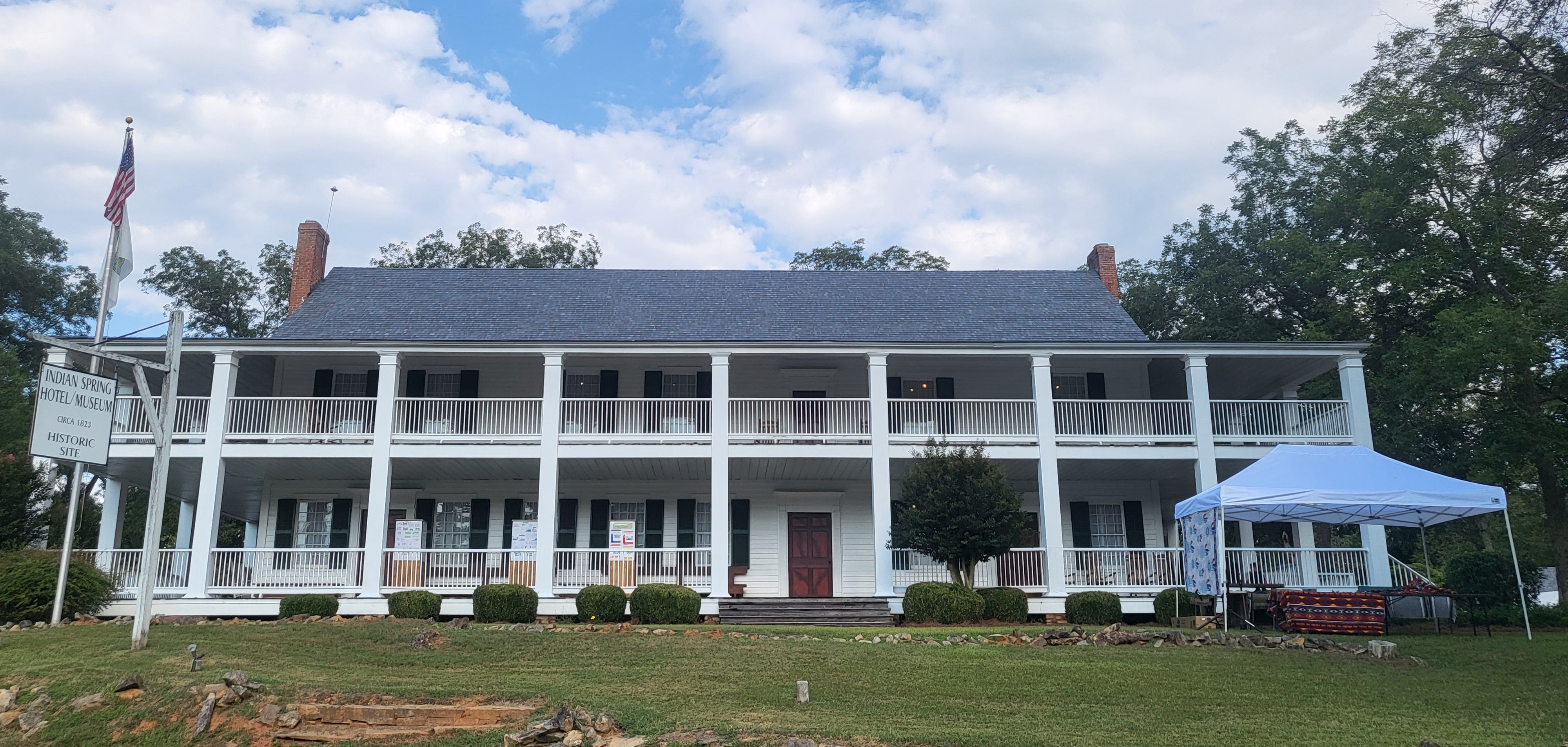
Enraged by what they saw as his series of pernicious actions, the Creek National Council concurred with Opothleyahola’s fury and began planning McIntosh’s execution. On April 30, 1825, Menawa, an Upper Creek chief, arrived at McIntosh’s home in Carroll County, Georgia with two hundred fellow Creek warriors. They set fire to his house, dragged him out of the burning residence, stabbed him in the heart, and shot him more than fifty times.
Soon after McIntosh’s murder, Congress rejected the Treaty of Indian Springs, claiming that many of the signers were not principal Creek leaders and that there was compelling evidence of bribery. The following year, the Creek National Council, under the authority of Opothleyahola, signed the Treaty of Washington, leading the Creek National Council to cede much of their land bordering Georgia to the government. By the end of 1827, all members of the Creek Nation had been removed from the state.
The storied stagecoach inn and tavern where the treaty was signed is now the Indian Spring Hotel, and it remains the most palpable reminder of McIntosh’s legacy in the small Southern town of Flovilla, population 650. The hotel stands majestically at the center of the quaint village, with its sturdy white columns sustaining both the structure and the pivotal history that occurred within its walls.

In September 2023, the Butts County Historical Society hosted its 33rd Annual Native Peoples Festival & Powwow, a weekend of festivities celebrating the area’s Native American heritage. Inside the tents spread out on the vast property of the hotel were vendors selling locally made Native American jewelry, rare artifacts, and fine paintings. Keynote speakers, including Gary McIntosh, the great-great-great-grandson of Chief William, and James R. Floyd, the former principal chief of the Muscogee (Creek) Nation, told of the significance of the hotel and how the treaty affected generations of Creeks.
During the powwow, a series of inter-tribal dances were preformed to demonstrate rich Mesoamerican cultures. Aztec dancers, also known as Concheros, joined the circle in their colorful feathered headdresses to dance in honor of their roots. The Aztec Dance is a way for the Concheros to worship and communicate with their gods. The dancers’ simple steps have deep meaning, such as squatting on the ground to represent crops and the land, and twirling in the air to symbolize their spirits. Through these exquisite moves, the body and soul become one.
There were also dances for the public to participate in, including a Candy Dance, in which children capered around a fire pit filled with flavorful candies. During another traditional Creek dance, a family in mourning gathered to remember and honor their wife, mother, and grandmother. With her daughter holding her photograph, the family solemnly moved within the circle before the surrounding crowd was invited to enter and offer their condolences.
The prime attraction of the festivities was the Indian Spring Hotel, celebrating its bicentennial. In 1823, McIntosh and his cousin, Joel Bailey, constructed a stagecoach inn in the small town of Indian Springs, renowned for its mineral-spring waters that the Creeks got healing from. Initially, the Creeks came to this area on what’s now known as the Native American Trails, famously traversed by indigenous people, traders, and settlers. McIntosh used these trails to visit his Scottish father in Savannah and his Creek mother in Carrollton.
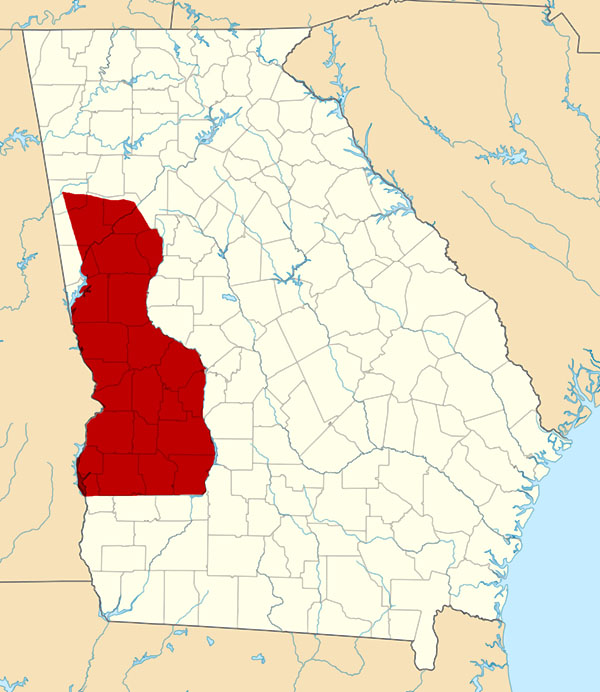
Although the Creeks had been visiting Indian Springs for decades, their fear that women’s voices and the cries from children would frighten the “healing spirits” from the springs prevented them from building in the area. This changed when McIntosh, a canny businessman who accumulated wealth through ventures such as running a ferry, built himself a cabin here in 1800. Once the inn and a subsequent tavern were open to the public, he took it upon himself to operate the lodge and bar.
After his gruesome assassination, the Indian Spring Hotel continued to thrive as mineral-springs hotels became more prevalent throughout Georgia. Members of the McIntosh family managed the hotel until Edward Varner and his sons purchased it in 1849 and renamed it the Varner House. During the Civil War, the hotel was a hospital for Union soldiers. Across the street, the Union Army assembled a camp while preparing to cross the Ocmulgee River.
The Varner family suffered devastating losses during the war, and the shock left Edward inconsolable. When he was admitted to an asylum, his wife, Cynthia, and their daughters, Amanda and Josephine took over the operations of the inn.
After a century of being owned by the Varner family, the hotel was bought by J.H. Elliot in 1953. As an antique dealer, he decided that the historic building should be more than a hotel, and for twenty years, he ran it as a museum and shop. By the late 1970s, the Indian Spring Hotel was in total disrepair. Rotted wood covered the exterior, the roof barely held up, and kudzu, known as “the vine that ate the South,” was strangling the vacant structure.
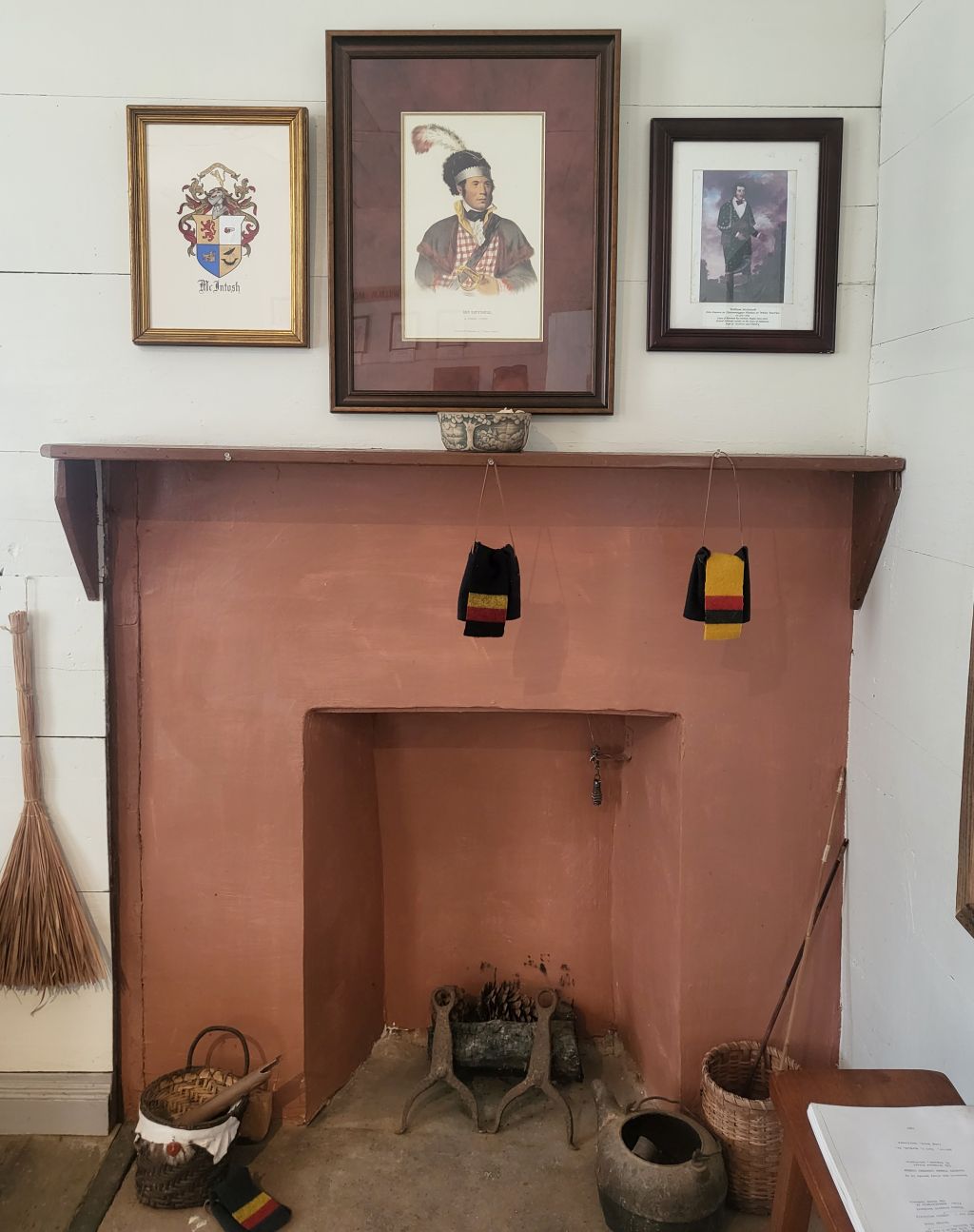
Finally, in 1974, the state of Georgia bought the hotel and planned a massive renovation and restoration. Knowing that they had an arduous task at hand, they divided the project into four phases. The first was launched in 1977 after the Department of Transportation gave a grant of $350,000, allowing for the repair and removal of the rotted wood and porches.
In the final stage of restoration, the porches on all four sides were rebuilt and the fireplaces were re-lined. Additionally, the lower-level floor was replaced, and the interior and exterior were repainted. Finally, the grounds were leveled, and beautiful native plants were dispersed throughout the property. After 30 years of extensive renovations, in April 2006, the impressive Indian Spring Hotel was reopened in a grand ceremony. The other distinguished hotels in the area had since burned down, and the Indian Spring Hotel is the only known antebellum mineral-springs hotel still standing in Georgia.
The Butts County Historical Society maintains the site and is fundraising to prepare for future renovations. “We are humbled to be the custodian of this beautiful, 200-year-old wooden structure which has stood the test of time and is where the Southeast was shaped – geographically, politically, and culturally,” explains Frankie Willis, president of the organization. “The significance of 4.7 million acres changing hands in this building, which altered the course of so many lives, is hard to comprehend,” she notes, “Its history is so diverse that we divided the museum into six eras of significance, and we keep improving its authenticity each year.”
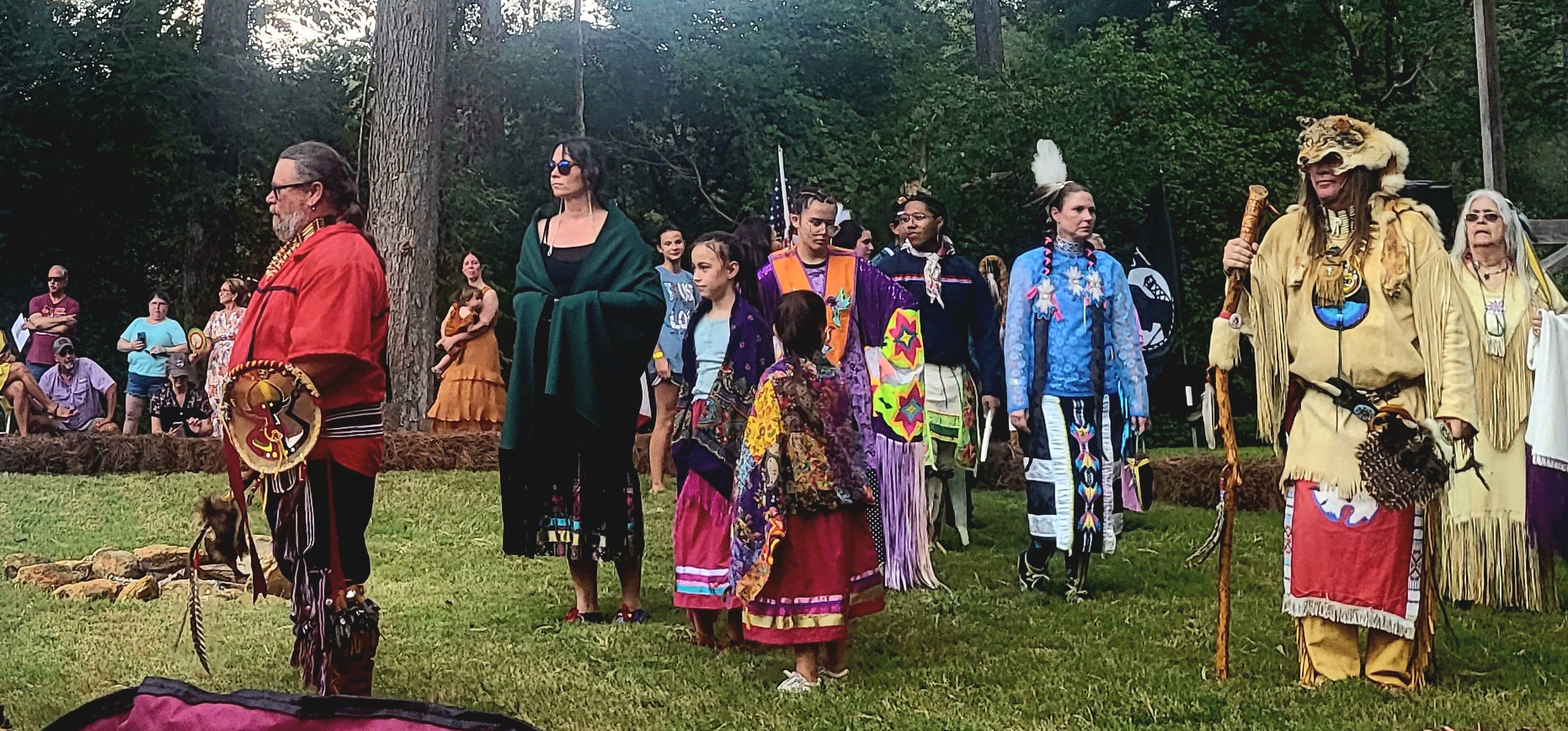
As visitors tour the hotel, they see the small alcove where the treaty was signed in 1825. The floors and most of the interior and exterior wallboards in the rooms upstairs are original, and so are the mantels. In front of the inn is a tablet placed by the local chapter of the Daughters of the American Revolution in 1911; it tells passersby of the site’s role in history.
Indian Springs State Park, celebrated for being the oldest in Georgia, is across the street from the hotel, and visitors still wade in the springs that the Creeks considered healing water.
Today, in Butts County, Native Americans account for less than 1% of the population. Descendants of Chief McIntosh and the other members of the Muscogee tribe now make the trek to their ancestors’ sacred ground for special festivities and remembrances. For Frankie Willis and the Butts County Historical Society, the Indian Spring Hotel represents hope for the future, and they intend to continue to use the site as a venue for teaching about the past. Two hundred years after McIntosh achieved his goal of opening this inn, the echoes of his spirit and actions continue to reverberate.

